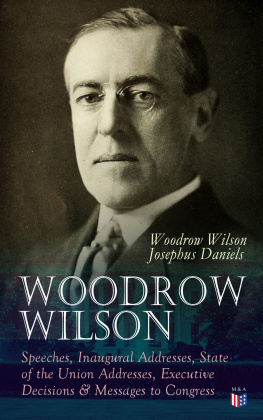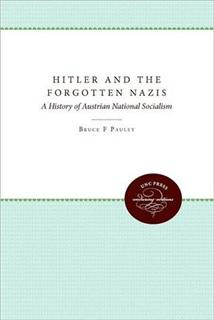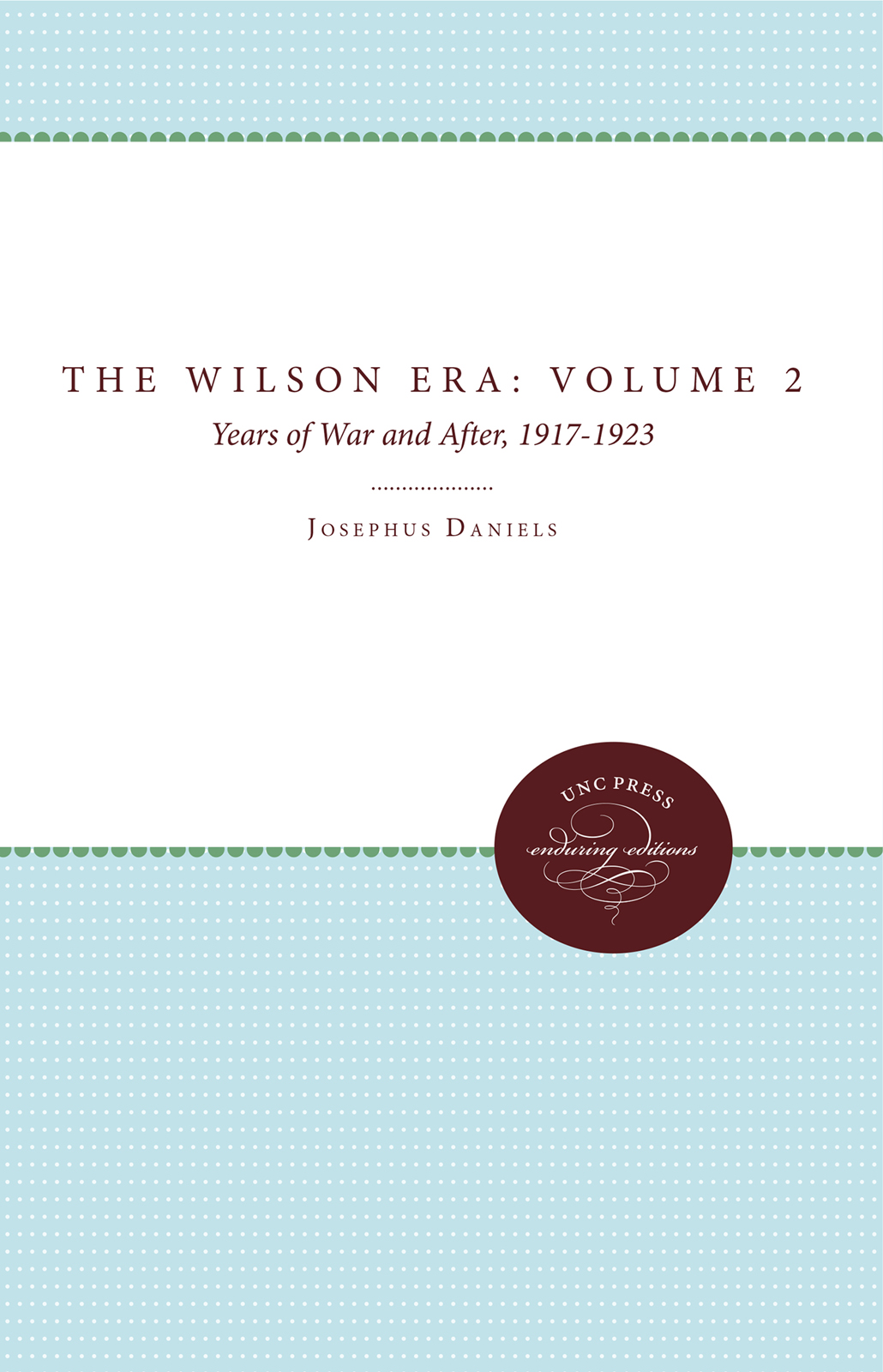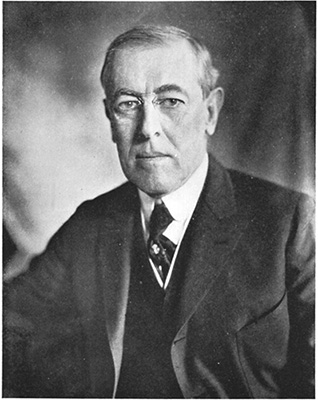For I tell you, my fellow citizens, I can predict with absolute certainty that within another generation there will be another world war if the nations of the world do not concert the method by which to prevent it.Woodrow Wilson, Omaha, September 8,1919.
The truest and tenderest and purest wife ever man was blessed with. To have such a love is the one blessing, in comparison of which all earthly joy is of no value; and to think of her is to praise God.
FOREWORD
But now, how trowe ye? Such a fantasye
Fell me to mynd, that ay me thought the bell
Said to me, Tell on, man quhat the befell
THE KINGIS QUAIR
THE WOODROW WILSON ERA , covering a dozen of the most momentous years in the life of the American republic, may be said to have begun when Wilson responded to the call to doff the scholastic cap and gown and enter the arena of politics in 1910. It moved into high gear as the legislation known as the New Freedom cut athwart old narrowing traditions, dethroned privilege, gave labor its Magna Charta, opened new highways for all the people, and made preparation for victorious participation in the war Wilson sought to avert. It reached its climax when all the free nations approved Wilsons League of Nations pact at Versailles, following such world manifestations of hero worship of Woodrow Wilson as were never before given mortal man by the peoples of the whole earth. In a former volume, The Wilson EraYears of Peace, 1910-1917, I undertook to give some of the sidelights through the period up to Wilsons second inauguration, when the world shook with the echoes of the feet of marching men in the most terrible war that had ever challenged civilization. The present volume, The Wilson EraYears of War and After, 1917-1923, covers the passing of this country from neutrality to war, Wilsons successful master strategy in the direction of the successful fighting of three million Americans under arms, his statesmanship manifested in the discharge of difficult domestic tasks, his consecrated and heroic fight for the peace for which he led the youth into war, his falling with the flag of peace pressed to his heart as his sacrifice made him the great casualty of the holocaust, and his dying in supreme confidence that the Covenant he had brought home would one day bless mankind and destroy forever the curse of war.
In the period treated, I held the portfolio of Secretary of the Navy and, with the aid and stimulation of the most efficient and loyal associates with whom a public official was ever blessed, directed the operation of the web-footed branch of war-making; was a member of the regular Cabinet, the War Cabinet, the Council of National Defense, the Committee of Public Information, which gave out news instead of censoring it, and various committees looking to shipping, war supplies, health, and the protection of the men in the armed forces from the harpies that appear in war days. When, broken at the wheel, Wilson retired in semi-invalidism, the close ties that had existed between us in official life continued. This personal relation puts upon me the compulsion of revealing the story behind the scenes.
If, in the interest of making history speak the truth, some self-placed auras, undeserved, are removed, and there follows the deflation of pumped-up reputations, I can truly say that no line has been written in malice. Privileged to enjoy the confidence of the noble man who was the great central figure and light-fountain of the high days of war as the prelude to peace, I have felt it a solemn responsibility, as the last surviving member of his original Cabinet, to give the inside story as his great leadership unfolded, from the day he summoned the people to a war against war until he died in the holy passion of undeviating consecration to lasting peace. In this duty I have sought to correct some of the assumptions in autobiographies and biographies written to exalt Wilsons trusted associates who, owing all to him, failed him in the supreme hour.
These sidelights of history reveal Wilson as one of the greatest minds of his age, with the noblest passion for unselfish public service and rarest devotion to loyal associates whom by adoption he had tried and proved. They make him no plaster saint, for upon rare occasion he could and did lose his temper exhibiting what Dr. Eliot called a fierce and unlovely side, which the Harvard president attributed to most reformers and pioneering folk.
The Wilson Era marked the rejuvenation of the Navy, which had been allowed to lapse to a poor second when Wilson was inaugurated. He declared for: The most adequate Navy in the world, and Congress provided for such a Navy in its Three-Year Program. Any picture of the Wilson days that does not depict the carrying out of Wilsons Naval policy would be incomplete. Naturally, from the Navy Conning Tower I have set down in permanent form the highlights with some detail, the story of Navy administration with illustrative incidents, stressing its great achievements in World War I. With less detail I have shown the decisive contribution the American Army made on the Western Front where the enemy was vanquished.
There is no attempt to write the full history of those epic days. Volume after volume has made that story familiar. I have essayed rather as a reporter taking notes to record the sidelights of that era, with emphasis on what me befell as Wilsons Secretary of the Navy and personal and political friend.
A chiels amang ye takin notes
And, faith, hell prent it
I have sought to retell incidents that illustrate the central figure of the Era with pen pictures and just appraisement of a few of the great and near-great at home and abroad who figured at the Peace Conference and in the stormy days that preceded and followed that first peace assize of all the nations of the earth
This is no chronological history. It is a personal narrative based on my observation and some participation in the events of those years. What I have written are my recollections, aided by my sketchy diary with borrowings from others.
In this labor of love and duty I have tried to tell the story of an epic era. All the while I have felt that I was looking back to glory.

CONTENTS
ILLUSTRATIONS
CARTOONS
MAPS
I: UNDERSTANDING WOODROW WILSON
T HERE WAS no touch of the mysterious or of the mystic about Woodrow Wilson. He was the easiest man to comprehend and understand of all the presidents who have occupied the White House.
When he was alive there were those who would say, Yes, he is gifted beyond all others in felicity of expression and he knows how to fight, but he is an enigma.
He lives in a sublimated atmosphere, lacks good-fellowship, and moves in a mysterious way his wonders to perform, said others.








